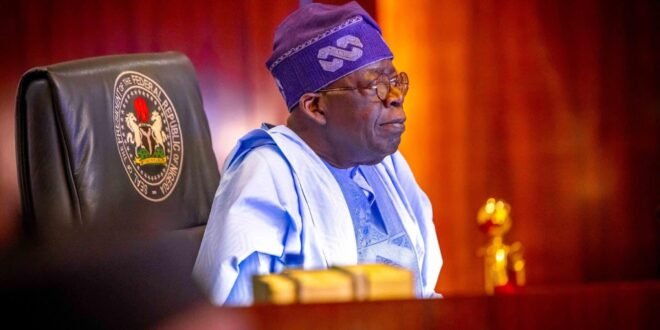The Vision of a Renowned Scholar
Professor Toyin Falola, who holds the Jacob and Frances Sanger Mossiker Chair in the Humanities at the University of Texas at Austin, has made significant contributions to the field of African studies through his academic work. With over 200 books to his name, he has shaped the discourse on African history, politics, literature, and diaspora studies. In this reflection, he shares insights on scholarship, identity, and the role of academia.
The Heroes of Democracy
In discussing the heroes of the June 12 democracy movement, Professor Falola emphasizes that the true heroes are the people themselves. He highlights the struggles faced by the masses under the oppressive rule of military dictators and politicians. These individuals bear the brunt of power displays that prioritize violence over the well-being of the common people. The collective decision-making process through voting is often undermined by a small group, which casts doubt on the judgment of the masses and diminishes their sense of self-worth.
The resilience of these individuals deserves recognition, as they have had to reinvest in their mental and emotional well-being after enduring such experiences. Their ability to resist bullying and stand tall against oppressive leadership is a testament to their strength and determination.
Leadership and Advice
When addressing the advice given to President Bola Tinubu by Colonel Abubakar Umar, Professor Falola suggests that the focus should not be on whether the president deserves the advice but rather on whether he should act on it. He notes that administrators attract various groups with different intentions, often seeking personal gain. This dynamic can lead to a culture of sycophancy that may not serve the best interests of the nation.
The Drive for Knowledge
Professor Falola’s prolific intellectual output is driven by a desire to understand the vastness of knowledge. He references Socrates’ assertion that “the more I know, the more I realize that I know nothing.” This realization fuels his quest for more knowledge, which in turn imposes a sense of discipline and responsibility. As a scholar, he feels compelled to produce knowledge that serves the people, guiding them with the light of information and understanding.
Interdisciplinary Scholarship
His work spans multiple disciplines, including African history, politics, literature, and diaspora studies. He views history as a foundational area of study that provides insights into various fields. His exploration of African history has been instrumental in shaping his academic career, and he believes that the interconnectedness of disciplines allows for a deeper understanding of cultural and historical contexts.
Indigenous Knowledge Systems
Professor Falola emphasizes the importance of indigenous knowledge systems in shaping Africa’s future development policies. He argues that these systems are crucial for determining the trajectory of civilizations and that they should be recognized and integrated into global academic discussions. By drawing from these traditions, African nations can develop solutions that resonate with their unique realities.
Reclaiming African Memory
Reclaiming African memory and agency is a critical task for African historians. Professor Falola advocates for a re-examination of African history to highlight the legacies of the forebears. He believes that solutions to contemporary challenges can be found in the knowledge and experiences of the past, regardless of their origin. Historians should focus on uncovering these resources to empower the current generation.
Teaching History as Resistance
History, when taught effectively, can serve as a tool for resistance. It reminds people of their agency and the potential for change. By reflecting on the past, individuals can gain insight into their identities and the actions needed to shape their futures. This approach encourages critical thinking and empowers the African mind.
Collaboration with Creative Industries
African academia can collaborate more effectively with creative industries to promote cultural creativity. Scholars play a vital role in exposing the values of African cultures to the world. By fostering partnerships between academics and creatives, there is an opportunity to transform individual and societal perspectives while promoting economic growth.
Cultural Capital and Innovation
Strategically converting cultural capital into innovation-driven economies requires a focus on the futuristic aspects of indigenous knowledge paradigms. Professor Falola highlights examples such as the Yorùbá people’s historical innovations, which can inspire future developments. By examining these traditions, African nations can harness their creative potential for global recognition.
Traditional Creativity in the Digital Age
Traditional forms of creativity, such as orality, performance, and memory, remain relevant in the digital age. These practices evolve to accommodate new realities, ensuring their continued significance. The integration of technology does not diminish their value; instead, it enhances their reach and impact, allowing them to thrive in a global context.
Universities and Cultural Preservation
Universities play a crucial role in preserving, nurturing, and innovating African cultural forms. They must balance institutionalization with the organic essence of these practices. By being more accommodating of creativity, universities can contribute to the advancement of collective goals and the preservation of cultural heritage.
Pan-Africanism in the Modern Era
Pan-Africanism continues to evolve in response to global sociopolitical dynamics. The exchange of ideas and cultural authenticity remains essential in a world characterized by hybridity. While capitalism influences creative productions, it is important to maintain the integrity of cultural values and ensure that they retain their organic essence.
African Studies in Western Institutions
Western academic institutions have become a melting pot for African studies, facilitating the exchange of epistemic traditions. This transformation has allowed African knowledge systems to gain international relevance, contributing to a broader understanding of African history and culture.
Balancing Authenticity and Hybridity
The production of contemporary African art and scholarship must navigate the balance between cultural authenticity and global hybridity. While engaging with global trends, it is essential to preserve the unique characteristics of African cultural expressions.
Lessons for Young Scholars
Young African scholars in the Diaspora should draw lessons from the model of scholarship rooted in Africa. They should prioritize originality and draw from indigenous knowledge systems to create sustainable identities. By doing so, they can contribute to the global celebration of African knowledge resources.
Values for the Next Generation
The next generation of African intellectuals must embrace originality and remain committed to their roots. They should strive to break barriers and contribute to the liberation of African intellectual traditions. By investing in deepened research and maintaining a commitment to their cultural heritage, they can drive meaningful change.
Legacy and Recognition
Ultimately, Professor Falola hopes to be remembered as a champion of the African epistemic revolution. His contributions to African studies and his efforts to bridge gaps between African scholars across continents reflect his dedication to the cause. Through his work, he aims to honor the past and inspire future generations to continue the journey of intellectual and cultural empowerment.
 Info Malang Raya Its All About World News
Info Malang Raya Its All About World News




